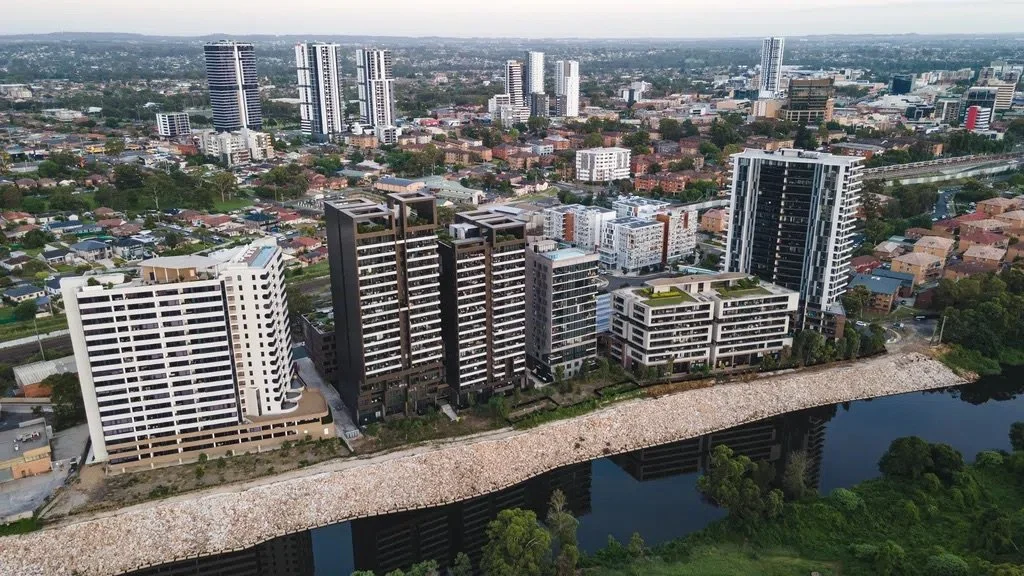Urban ‘regeneration’ – where disadvantaged or declining neighbourhoods are targeted for intervention and ‘renewal’ – has a checkered history. From the ‘slum clearance’ initiatives of the 20th Century, to contemporary ‘upzoning’ reforms, proponents claim that increasing new housing development within existing urban areas is preferable to ‘greenfield’ development. Yet concerns remain about the environmental impacts and design quality of recent projects as well as wider risks of gentrification and displacement under existing models of market led regeneration. This panel considers recent practice and asks whether a truly “regenerative” model could replenish urban ecosystems, while supporting social capital and housing justice.
CHAIR
Alexandra O’Mara, Professor of Practice in Urbanism, The University of Sydney, School of Architecture, Design and Planning
Speakers
Dr Alistair Sisson, Macquarie University Research Fellow (MQRF), School of Communication, Society and Culture
Professor Louise Crabtree Hayes, Professorial Research Fellow, Institute for Culture & Society, Western Sydney University
Caroline Pidcock LFRAIA GAICD, Adjunct Professor of Practice at the School of Architecture + the Built Environment, University of Newcastle; Chair of the AIA Environment Design Guide Advisory Group; Co-Chair of the Australian Institute of Architects (AIA) National Climate Action and Sustainability Committee.
Emily Rowland, Community & Storytelling Lead, Regen Sydney; Environmental Science Undergraduate, Macquarie University
Dr Alistair Sisson is interested in the dynamics of housing and economic policy, urban planning and inequality. His doctoral research examined the politics of public housing policy in Australia with a focus on estate redevelopment and the Waterloo estate in particular. His subsequent research has spanned affordability and security in the private rental sector, the politics and economics of urban densification, and emerging trends in urban governance. His current project is titled ‘The politics of housing data’ – a critical analysis of the ways that contemporary housing problems are quantified and how data is used to frame the housing crisis.
Lou Crabtree-Hayes is a geographer and a Professorial Research Fellow in Western Sydney University’s Institute for Culture and Society. Recognising the role of property in colonisation and unsustainability, Lou works across social and ecological regeneration, and on permanently affordable models of community-led housing and land stewardship to that end. This recognises the central importance of land-based justice for First Peoples and the significance of Country-led approaches to regeneration. Lou led the creation of the Australian Community Land Trust Manual and, more recently, led the first national study of Australia’s affordable rental housing co-operatives, in partnership with housing co-operative providers and member-tenants.
Caroline Pidcock is a highly regarded architect, board director and changemaker working at the intersection of design, climate action and regenerative practice. With over 30 years of leadership experience across professional, not-for-profit, government and advocacy boards, she brings deep expertise in sustainability, governance, and community engagement. Caroline is committed to ideas that restore and regenerate people, place, and planet. She brings her design and systems thinking to the fore in a range of environments to identify patterns, connect the dots and collaboratively develop the potential of the situation.
Emily Rowland is Community and Storytelling Lead at Regen Sydney, a civic platform reimagining how cities can thrive within ecological and social limits. A passionate advocate for intergenerational justice, Emily convenes communities, councils, and cross-sector partners to explore how food, place and story can seed systemic change. She was a founding member of Climate Action Week Sydney, and her ocean advocacy as part of the NSW Sanctuary Alliance Steering Committee earned her the 2025 Valerie Taylor Ocean Prize for Youth Action for the Ocean Blue World. Emily delivered a keynote as the youngest speaker at Raising the Bar and is currently producing the Resilient Rushcutters impact story through the City of Sydney’s Pathway to Purpose program. Emily is studying Environmental Science at Macquarie University and represents the perspective of a younger generation helping to shape Sydney’s transition toward a life-affirming, regenerative future.

